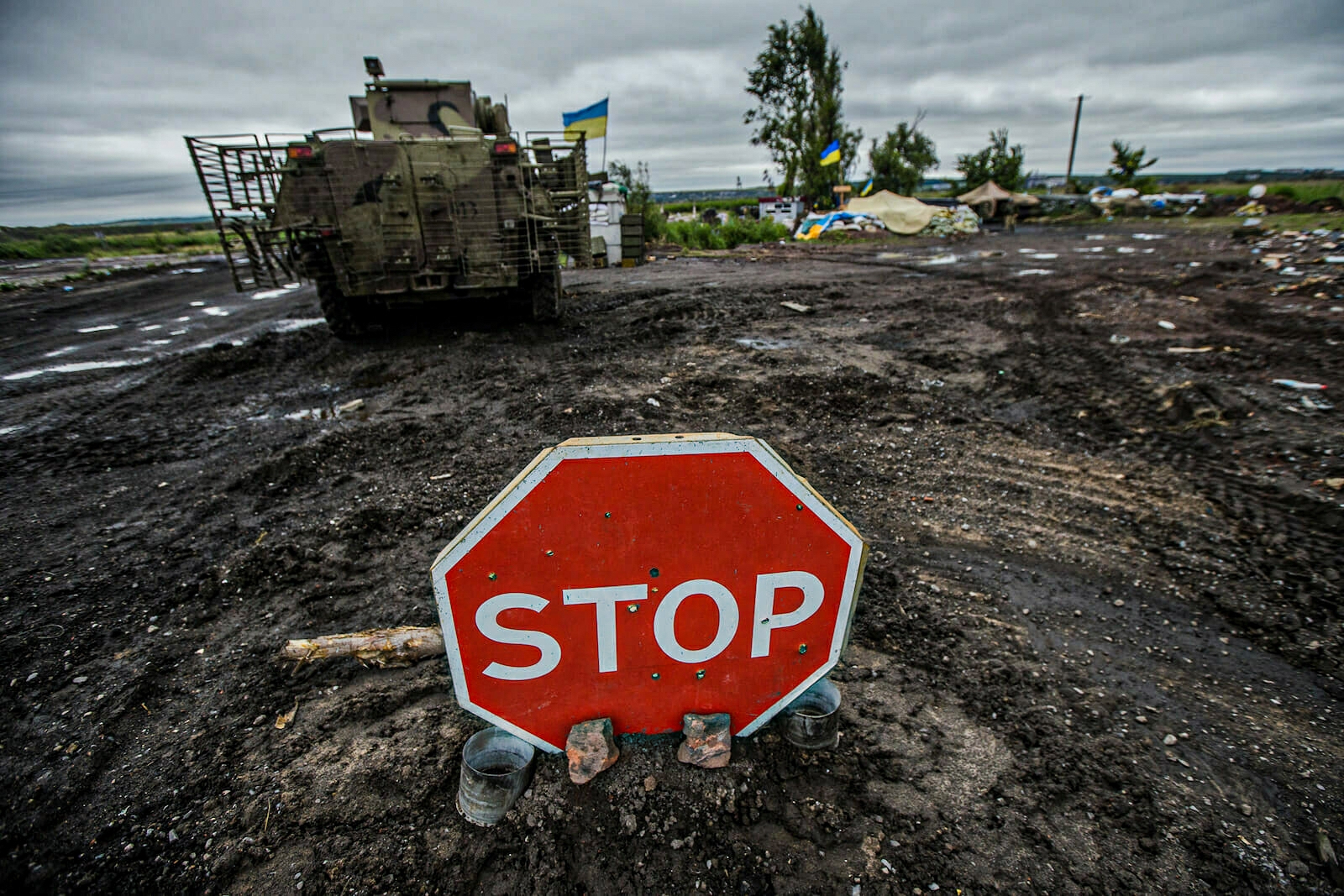
Illicit Russian Money Buying Legitimacy for Ukraine’s Breakaway Republics
It has been five years since tanks first rolled into eastern Ukraine and little green men began appearing and the war between Ukrainian forces and Russian-backed separatists still rumbles on. There seems to be little hope that a resolution will be found or that the fighting will end. Even with the election this week of Volodymyr Zelensky as the president of Ukraine and the prospect of political change, those in the east of the country see little hope in the future.
The war has brought despair to those living in the separatist Donetsk and Luhansk People’s Republics (DPR and LPR). There is a general air of desertion, with locals feeling like they have been abandoned by Kyiv and neglected by Moscow, yet the separatist republics live on, funded by a continuous stream of illicit money.
Since the start of the war in 2014, the business and criminal worlds have become increasingly interwoven, taking advantage of the state of war engulfing the Donbas. Coal, gold, gasoline, tobacco, and illicit cash flow across the border with Russia thanks to a complex criminal trade network. Businessmen operating in the shadows, such as coal magnate, Ruslan Borisovich Rostovtsev, have taken advantage of the lawlessness of the Donbas. His business of exporting coal from the Donbas under Kremlin protection has allowed him to funnel money back into the separatist-controlled areas, thereby supporting their legitimacy and the Kremlin’s interests, while pocketing profits for himself.
The export of Donbas coal disguised as Russian coal has been a key factor in the survival of the separatist movement and the war. Coal is transported from east Ukraine, across the border to Rostov, where it is repackaged, relabeled, and sent across Europe as Russian coal. The coal is sold unknowingly to European buyers who are unwittingly funding the DPR and LPR. The money is then injected back into the separatist states, funding their military and autonomous governments and legitimising their existence.
An embargo on goods from eastern Ukraine has resulted in South Ossetia, a self-declared splinter state in Georgia, being used as a financial hub. Its primary role is to allow money to continue to flow from Europe to Russia and then on to the DPR whilst avoiding sanctions. This arrangement allows the DPR to purchase goods in Russia which are then shipped to eastern Ukraine. It also allows Donbas exports to be sold in Russia and the money to be wired back to the separatist states. It is thought that last year alone $150 million in payments was funneled through South Ossetia.
The separate banking system has served as a way to sustain the separatist economies and legitimise the republics by financing projects such as propaganda and institutions. Money from the coal industry has been used to set up bogus DPR embassies and diplomatic outposts across Europe and to entice fighters to the front line. There is a feeling of such despair and poverty that the $300 a month offered to fight means many join the cause not for ideology or any allegiance but purely out of desperation.
It is not only the money from illicit trade that helps to legitimise the separatist regions. Continued military support and supplies from Russia have allowed the regions to stay under separatist control. The Organisation for Security and Co-operation in Europe (OSCE) reported seeing new Russian military equipment in the Donbas as recently as a few weeks ago. Russia has equipped the separatists with tanks, artillery, and other military weapon systems, significantly improving the military capabilities of the DPR and LPR. The Kremlin continues to deny that it is supplying the forces, but endless footage of Russian trucks trundling towards the border contests these claims. This was brought to international attention following the horrific shooting down of flight MH17 by separatist forces on July 17, 2014, with the use of a Russian BUK missile.
Since the start of the conflict, Russian involvement has also included the use of Russian ‘volunteers’ and troops, with an alleged 11,000 Russians currently thought to be in the Donbas. Russian involvement has ensured a well-trained military presence with high-grade weapons. Prominent military commanders have also played a role in organising the separatist movement.
The Kremlin’s love of disinformation has also played its part in legitimising the DPR and LPR. Isolation from Ukraine and the rest of the world has allowed the separatists to feed a never-ending stream of pro-Russian propaganda, enforcing Putin’s desired rhetoric. TV towers broadcast Russian stories, telling Ukrainian people in occupied territories that Ukraine is in ruins and that the Ukrainian army is perpetrating war crimes.
In November last year, the occupied territories held phony leadership elections. The international community condemned the vote as a sham that was manipulated by the Kremlin and in violation of the 2015 Minsk Ceasefire Agreement. Many believed the elections were a charade to give false legitimacy to a Moscow-approved leader. The elections were held under conditions of occupation, with no freedom of campaigning or freedom of speech. They do, however, show how the occupied territories are still trying to enforce a sense of legitimacy on the region, something that is funded by illegal sources.
There are more than 3 million civilians living in the self-declared states, their livelihoods lost, and what resources they had exhausted. Around 13,000 people are thought to have lost their lives and yet there seems to be no end in sight. Locals have been abandoned and are at the mercy of rebel leaders with ties to Moscow. Businessmen with Kremlin protection are actively prolonging the war with their involvement in the criminal underworld that thrives in the Donbas. Without a stronger strategy from the West on how to defeat the illicit trade occurring in eastern Ukraine and stamping down on criminal money moving through Europe, the separatist movements will continue to be legitimised and the war will endure.
